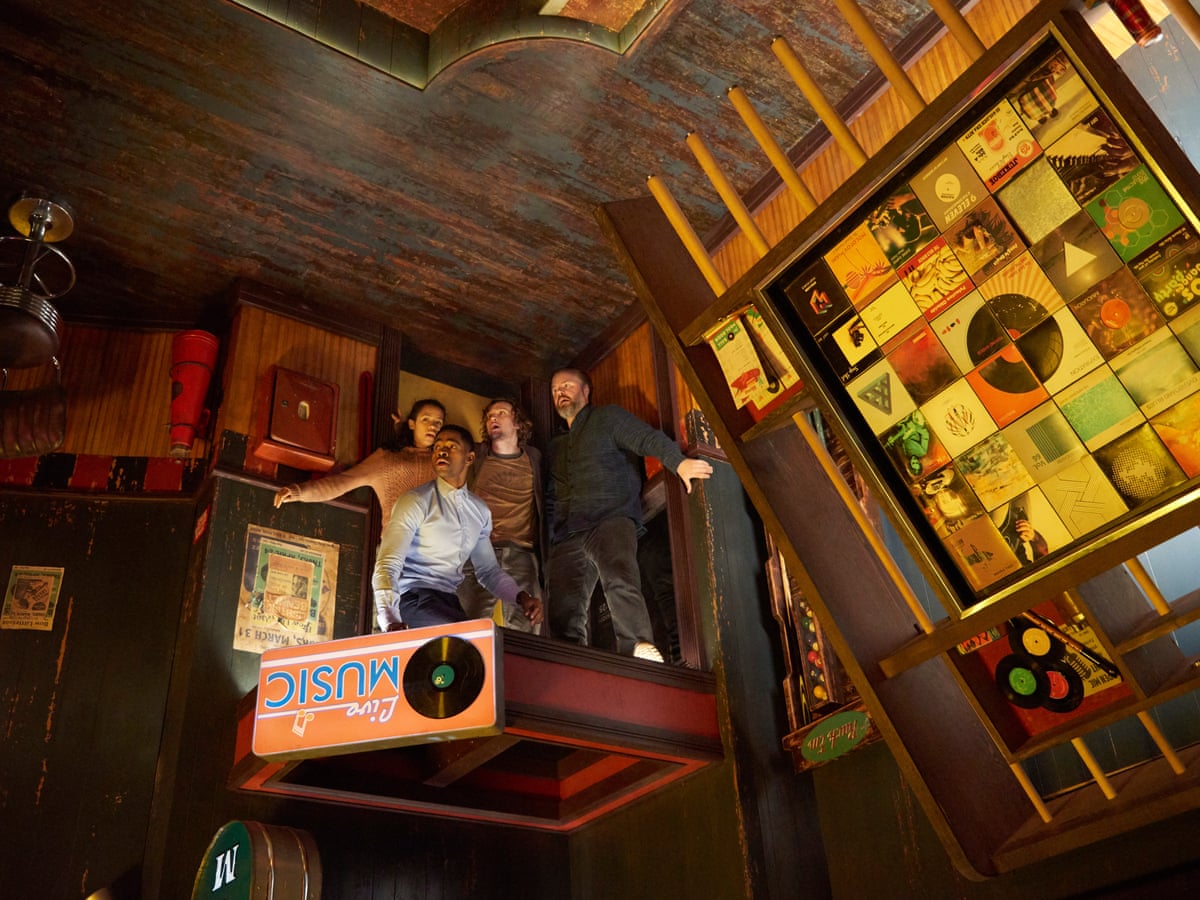Explore the Best Escape Room in Minneapolis-- Schedule Your Experience
Explore the Best Escape Room in Minneapolis-- Schedule Your Experience
Blog Article
Team Strategies: How to Work together Efficiently in a Getaway Room
Groups must actively listen to each participant's understandings, assign functions that line up with specific strengths, and preserve regular check-ins to make sure focus and avoid redundancy. By fostering an atmosphere that values communication and versatility, teams can dramatically increase their efficiency and success prices.
Establish Clear Communication

To help with clear interaction, it is vital to assign a main point of get in touch with for details circulation. This function entails summarizing findings and suggested approaches to ensure everyone remains on the same page. Additionally, taking on a methodical technique to conversations can stop disorderly exchanges. For instance, short, concentrated updates from each team member can maintain the team informed without frustrating them with information.

Designate Roles Strategically
While clear communication sets the structure for reliable team effort, designating functions tactically makes certain that each group participant's strengths are made use of properly. In a getaway room situation, the time-sensitive and complex nature of challenges requires a well-organized approach to task delegation. By identifying and leveraging individual proficiencies, groups can optimize their analytical capacities and improve overall performance.
A person with a keen eye for information might succeed in locating hidden items, while a logical thinker could be much better fit to resolving challenges. This duty often needs strong organizational and interpersonal skills.
Second, make certain that roles are flexible and adaptable. As new difficulties emerge, the team has to have the ability to pivot, reapportioning jobs as needed. This flexibility aids maintain momentum and protects against traffic jams that might take place because of rigid duty projects.
Eventually, a critical approach to duty assignment not just makes best use of the staminas of each team participant but likewise cultivates a cohesive atmosphere, driving the team in the direction of a successful retreat.
Make Use Of Diverse Skills
Recognizing and taking advantage of the diverse skills within your team can dramatically boost your performance in a retreat area. Each staff member brings special toughness to the table, and properly leveraging these capacities can accelerate problem-solving and boost general effectiveness. A team participant with strong analytical skills could succeed at analyzing complex codes or patterns, while one more with eager observational capacities may swiftly detect surprise hints that others could overlook.
Encourage team members to articulate their understandings and concepts immediately, making certain that all prospective solutions are taken into consideration. Furthermore, appointing tasks that straighten with each participant's toughness can stop traffic jams and guarantee that progression is constant.
In addition, useful source diversity in abilities usually translates to variety in believing designs, which is indispensable in a getaway room setting. While some challenges might call for rational reasoning and accuracy, others may take advantage of creative and lateral reasoning. By acknowledging and leveraging this variety, teams can attend to a wider series of obstacles a lot more properly, therefore boosting their possibilities of an effective escape.
Manage Time Efficiently

First, designate preliminary minutes for a quick survey of the area. Identify noticeable problems and divide jobs based on staff member' staminas, making certain that no one is idle. Set internal time checkpoints to evaluate development occasionally; as an example, purpose to have half the problems resolved by the mid-point of the video game. This technique can help keep the group focused and stop time from sliding away unnoticed.
In addition, avoid one-track mind. If a problem is taking as well long, revolve employee or proceed to an additional difficulty, returning later on with fresh viewpoints. Interaction is paramount-- keep everyone upgraded on fixed puzzles and continuing to be tasks to prevent repetitive efforts.
Finally, use any kind of tips try this out or ideas moderately yet strategically blog - best escape room. Recognizing when to ask for assistance can save beneficial time. By adhering to these time management concepts, teams can substantially enhance their opportunities of an effective and enjoyable getaway space experience
Debrief and Show
Representation is an essential element of team development and improvement in the context of escape spaces. As soon as the difficulty is finished, whether successfully or not, it is important for the group to take part in an organized debriefing session. This process permits employee to evaluate their efficiency, determine strengths, and determine areas for improvement.
Start the debrief by reviewing what worked out. Highlight certain circumstances of efficient communication, problem-solving, and collaboration. Identifying these favorable behaviors strengthens them and encourages their repetition in future obstacles.
Discuss moments of confusion, miscommunication, or inadequate strategies. Motivate an open and positive discussion where team members can share their viewpoints without fear of objection.
Conclusion
In final thought, successful cooperation in a retreat space is asserted upon clear communication, strategic function assignments, the reliable application of diverse skills, and proficient time management. By creating a natural and adaptive team setting, the possibility of efficiently resolving puzzles and attaining the objective of leaving the area is considerably improved.
Report this page